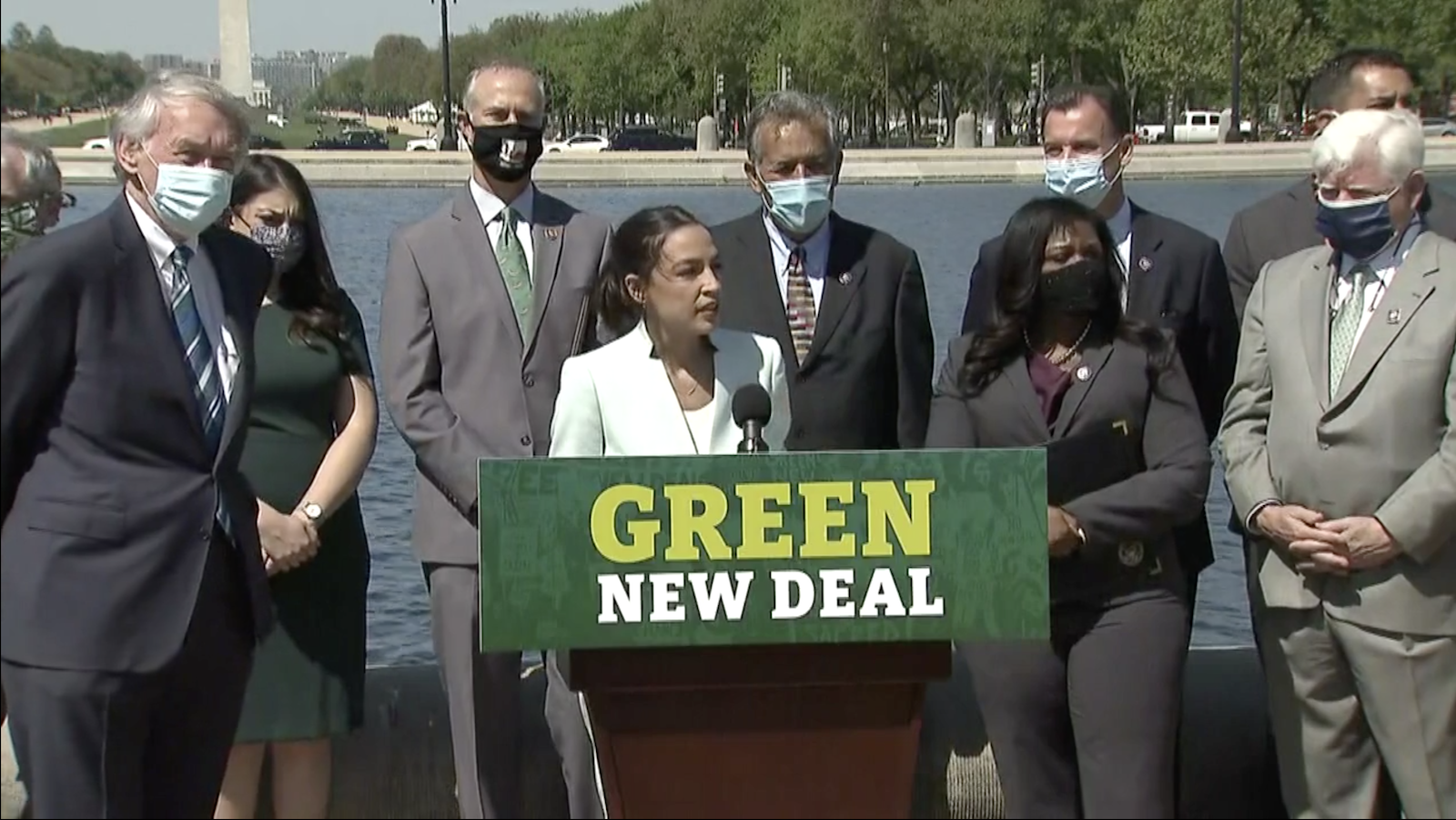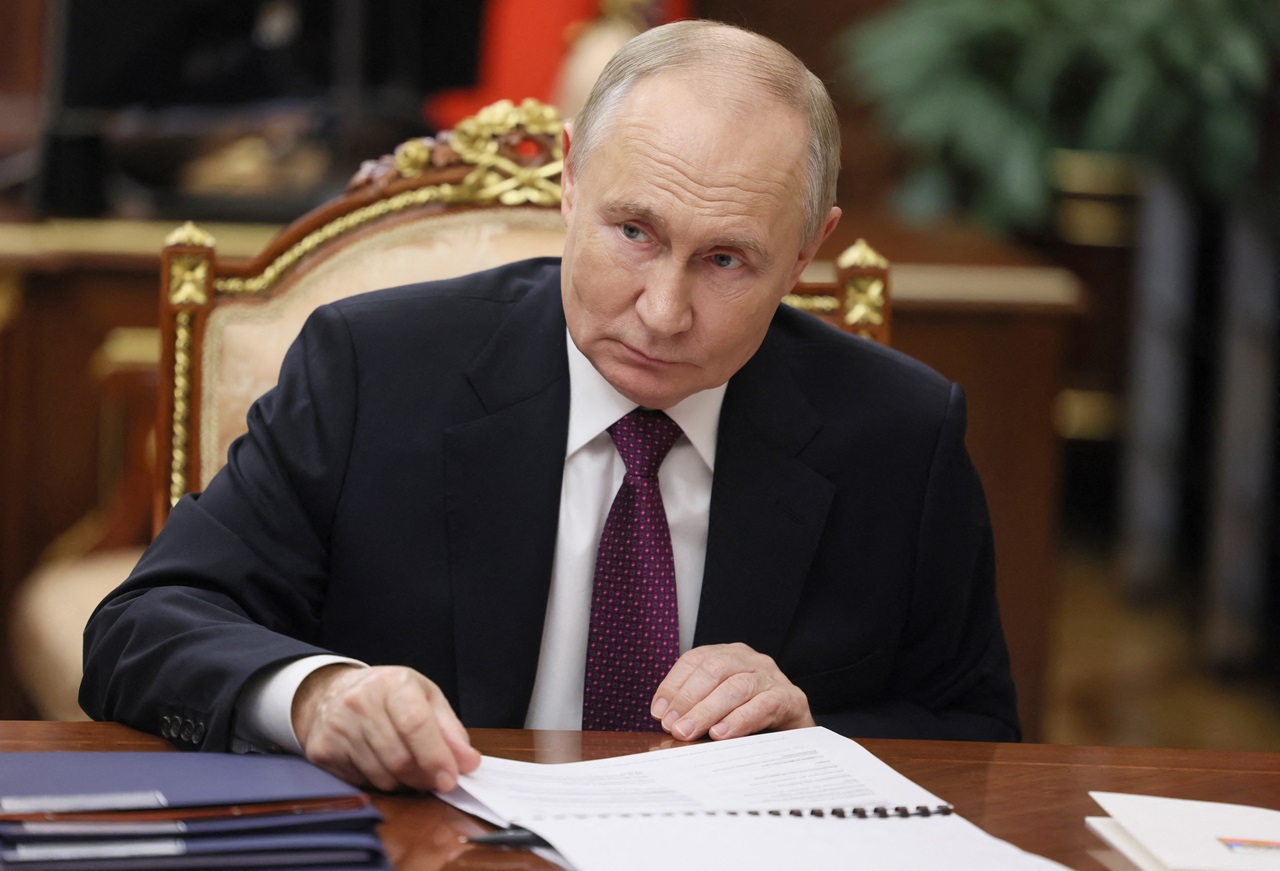
So basically, this is AOC’s Green New Deal Week
It's a Green New Deal for Housing, Cities, the Civilian Corps Act and more.
Rep. Alexandria Ocasio Cortez is continuing this week with a collection of bills focused on the promise of a Green New Deal.
On Monday, she and Senator Bernie Sanders rolled-out the first of three bills to be released this week, centered on the Green New Deal’s main points: jobs, justice, and reducing carbon emissions. First, was the Green New Deal For Public Housing, a piece of legislation that would modernize the public housing system and begin a transition to renewable energy.
Their joint public housing act would repeal limitations on the construction of public housing and create grant programs to ensure improvements that will in turn, reduce carbon emissions.
The Green New Deal for Public Housing would:
— Rep. Alexandria Ocasio-Cortez (@RepAOC) April 19, 2021
Improve living conditions for nearly 2 million
Lower utility costs, reducing energy bills up to 70%
Dramatically reduce lead poisoning, unsafe drinking water & air pollution
Create 240k good-paying, union jobs
That same day, Rep. Cori Bush (D-MO) joined Rep. AOC’s longtime efforts with their own Green New Deal initiative that would directly fund local governments to address lead and other hazards that Bush recalls plagued her community growing up in St. Louis, Missouri.
The Green New Deal For Cities would authorize $1 trillion in spending over the next four years to go towards environmental justice projects that align with the Green New Deal’s vision.
Conservative lawmakers on the state level have been combating climate initiatives, or in Texas’ case, striking down already-present bills to limit renewable energy.
The $1 trillion in federal spending that would go directly to cities, towns, and tribes with initiatives to strike-down carbon emissions or start clean-up projects that would bypass state government walls. About two dozen other progressives are also co-sponsoring the bill.
It allows for funds to be spent on an extensive list of climate-related issues. From projects that would cut emissions with electric vehicles to cities that seek remedying toxic water and soil pollutants and in the end becoming more environmentally resilient.
“These are issues that affect our communities every day. We need to invest in solutions at the local level,” Bush wrote on Twitter.
Our walls are poisoned with lead paint. Our water is radioactive. Our lungs burn from polluted air.
— Congresswoman Cori Bush (@RepCori) April 19, 2021
These are issues that affect our communities every day. We need to invest in solutions at the local level.
That’s why @RepAOC and I introduced the Green New Deal for Cities. pic.twitter.com/LNa45ggOYL
On April 19, Rep. AOC is set to reintroduce the landmark Green New Deal legislation alongside Senator Ed Markey. His advocacy for the bill is one of the key reasons why he won his underdog campaign against Joseph Kennedy III in 2020. Now two years since its first introduction, it has become famous for a number of reasons. It’s a piece of legislation for which supporters have been both praised and villainized.
She was joined by Senator Alex Padilla (D-CA), Rep. Jared Huffman (D-CA), Rep. Cori Bush (D-MO), Ellen Sciales with Sunrise Movement, Kari Fulton with Climate Justice Alliance, and Judith Howell with the 32BJ SEIU property rights union.
The resolution was stopped with a cloture vote in the then GOP-controlled Senate before it could advance further.
The last version of the Green New Deal was a set of climate protection standards progressives and became a prime point of attack for conservatives. This week, along with the two aforementioned bills, AOC and progressives are expanding that proposal into a broader package of plans that is in competition with President Joe Biden’s own $2 trillion infrastructure plan.
Biden outlined his own housing proposal in March, in which he called for more than $40 billion to improve public housing infrastructure. Biden’s bill is outlined in broad terms — a $2 trillion infrastructure plan would also work to fight climate change by accelerating the shift to alternative energy sources, and close racial gaps.
It’s similar to the Green New Deal, but not quite in terms of investment. And now, the Green New Deal is getting more specific. It has been moderately accepted by Democrats, but progressives worry that his administration risks losing their more ambitious climate goals.
RELATED CONTENT
“It’s Green New Deal Week,” Rep. AOC wrote on Twitter, outlining the bills that she would be introducing this week.
Along with the Green New Deal reintroduction today, she is also expected to introduce the Civilian Climate Corps with Markey, a nod to Biden's January executive order that called for a plan to create such a group. Biden’s order says it would "mobilize the next generation of conservation and resilience workers and maximize the creation of accessible training opportunities and good jobs.”
Rep. AOC will also join Rep. Chellie Pingree to reintroduce the Agricultural Resilience Act, which, if implemented, would work to reach a net-zero greenhouse gas emissions by the year 2040.
It’s Green New Deal week!
— Alexandria Ocasio-Cortez (@AOC) April 20, 2021
This week we’re highlighting:
Green New Deal reintro tomorrow w/ new Congressional cosponsors
GND for Cities w/@CoriBush
GND for Public Housing w/@SenSanders
Civilian Climate Corps w/@EdMarkey
Ag Resilience w/@chelliepingree
& more https://t.co/JUfYyRBaBb
At the Bills’ re-introduction Tuesday, AOC noted the progress the Green New Deal has made in the two years since its first introduction.
“A lot has happened since we introduced this resolution two years ago,” she said.
Over a dozen pieces of legislation have been introduced in the House that adopt the Green New Deal framework. From the repeal of the Faircloth amendment last year, to several local municipalities adopting their own initiatives based on the original bill. Now it stands at 103 House co-sponsors.
“Racial injustice, economic inequality, housing, education, jobs, and climate change. It is all intertwined, and that is why we are here today. Because we know that there cannot be true freedom when people are imprisoned by poverty, and homelessness. There cannot be true liberty when education is withheld, our civil rights denied. There cannot be public health when air sickens and water poisons,” Markey said.
A copy of the resolution can be found HERE.











LEAVE A COMMENT:
Join the discussion! Leave a comment.